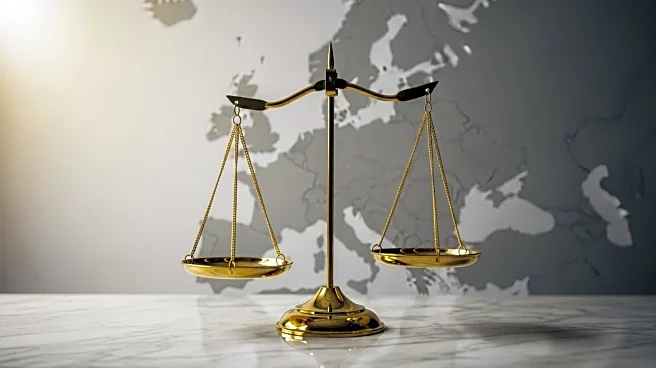What's Happening?
Moldova's ruling Party of Action and Solidarity (PAS), led by President Maia Sandu, secured a decisive victory in the parliamentary elections, overcoming allegations of Russian interference. The election was seen as pivotal for Moldova's future alignment with the European Union. Despite claims of Russian disinformation campaigns and cyberattacks, PAS garnered over 50% of the vote, maintaining its majority in the 101-seat legislature. The pro-Russian Patriotic Bloc, led by former President Igor Dodon, received less than 25% of the vote and has called for protests. Sandu aims to achieve EU membership for Moldova within five years.
Why It's Important?
The election results are crucial for Moldova's geopolitical orientation, reinforcing its commitment to EU integration and democratic reforms. The victory of the pro-EU party signifies a rejection of Russian influence, which has historically impacted Moldova's political landscape. This outcome may strengthen Moldova's ties with Western allies and accelerate its EU membership process. The election also highlights the challenges of external interference in democratic processes, underscoring the need for robust electoral security measures.
What's Next?
Following the election, Moldova will focus on advancing its EU membership bid and implementing reforms to enhance governance and reduce corruption. The government will likely face challenges in managing economic pressures, particularly in securing energy supplies after Russia's gas cutoff. International observers and EU officials will monitor Moldova's progress, offering support for its integration efforts. The political landscape may experience tensions as the opposition mobilizes protests, potentially affecting domestic stability.
Beyond the Headlines
The election underscores the broader struggle between pro-European and pro-Russian forces in Eastern Europe. Moldova's path to EU membership could serve as a model for other post-Soviet states seeking integration with Western institutions. The situation also raises questions about the effectiveness of Russian influence operations and the resilience of democratic systems in the face of external threats.









